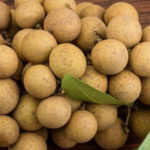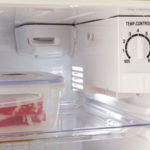Women have shared many ways to keep vegetables fresh for a long time. Many of them wrap vegetables in paper towels, newspapers… and then put them in zip bags or containers for storage. But this method only keeps vegetables fresh for about 7-10 days.
Some women clean and prepare the vegetables before putting them in the refrigerator. This method makes the vegetables not fresh and susceptible to wilting. There are also people who share the method of fully ripening the vegetables before putting them in the refrigerator. This method takes up a lot of space in the freezer, and if not stored properly, the vegetables may lose their nutrients.
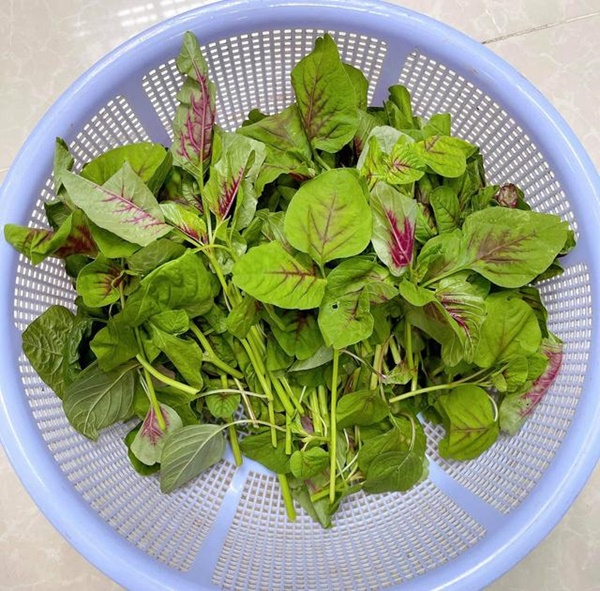 On a culinary forum, Ms. Mandy Tran shared a brand new way to store fresh vegetables.
On a culinary forum, Ms. Mandy Tran shared a brand new way to store fresh vegetables.
“I have tried many ways to store vegetables and tubers in the refrigerator, such as wrapping them in paper towels, newspapers, lining them with paper towels on top and bottom, wrapping them in plastic wrap. These methods can keep vegetables fresh for about 7-10 days. If stored in good plastic containers, they can be kept longer.
However, in this pandemic season, my fancy containers are not enough and not big enough, so I have to use all kinds of containers to store and find a way to keep vegetables fresh for more than 1 month. I would like to share with my fellow women the simple and economical way I am currently using to store fresh vegetables for more than 1 month”, Ms. Mandy Tran shared.
Ms. Mandy Tran’s method of storing fresh vegetables is to wrap them tightly with cotton fabric and put them in a refrigerated container.
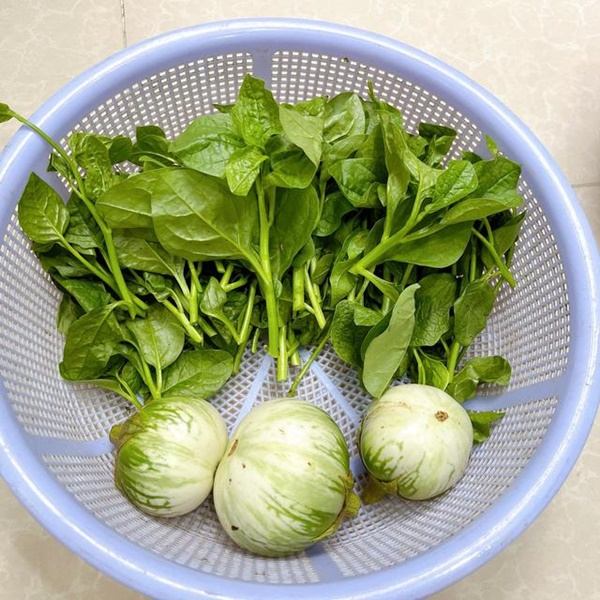 Dry vegetables before storage
Dry vegetables before storage
Step 1: Make sure the vegetables are dry (do not wash them), discard any damaged leaves. If the tubers are dirty, wipe them clean with a towel.
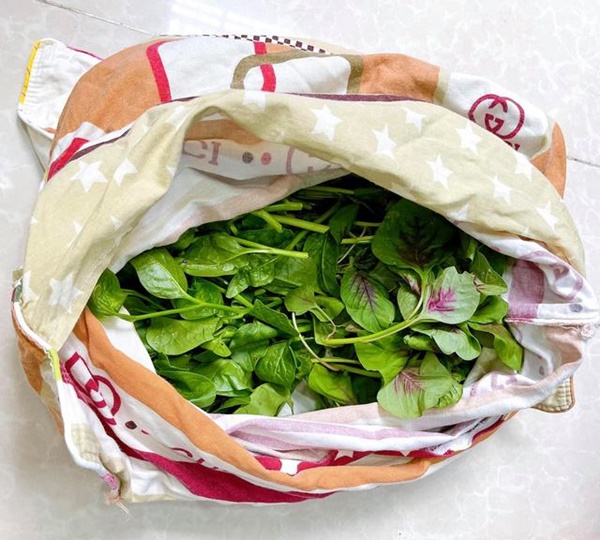 Choose thick fabric, place the vegetables in the middle
Choose thick fabric, place the vegetables in the middle
Step 2: Choose thick cotton fabric for better moisture absorption. If the fabric is thin, you can wrap multiple layers to absorb moisture well and keep the vegetables fresh longer. Women can use unused T-shirts or pillowcases, which are very convenient.
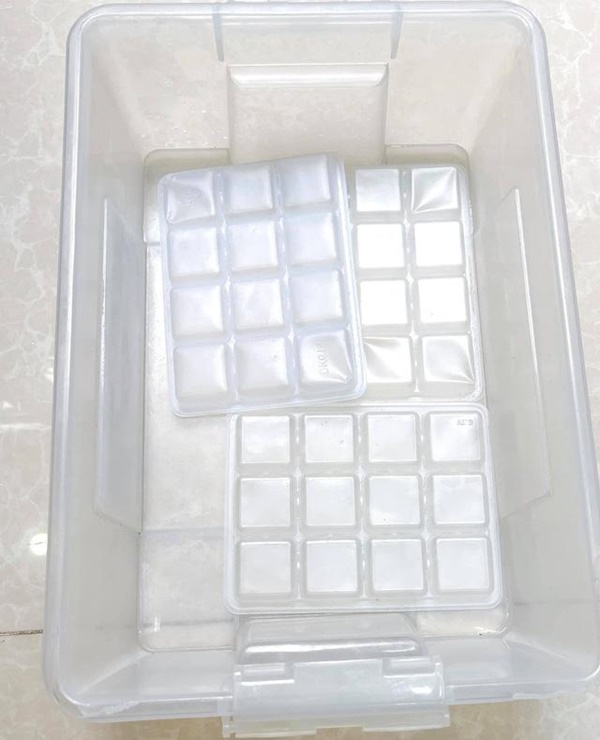 Large container, if unavailable, put the vegetables in the refrigerator compartment
Large container, if unavailable, put the vegetables in the refrigerator compartment
Step 3: Prepare a storage container. If there is no container, wrap the fabric and put it in the refrigerator or vegetable storage compartment. It is recommended to line the plastic or any type of plastic container at the bottom of the container to create a gap between the vegetables and the bottom of the container, keeping the fabric and vegetables dry and ventilated without water retention.
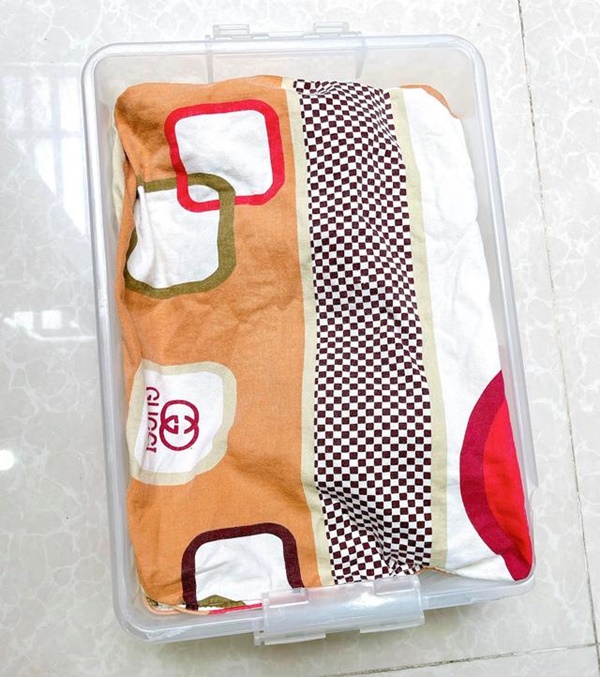 Wrap the vegetables tightly with fabric and put them in the container
Wrap the vegetables tightly with fabric and put them in the container
Step 4: Use paper tape to write the name of the vegetable and stick it on the fabric and outside the container for easy access.
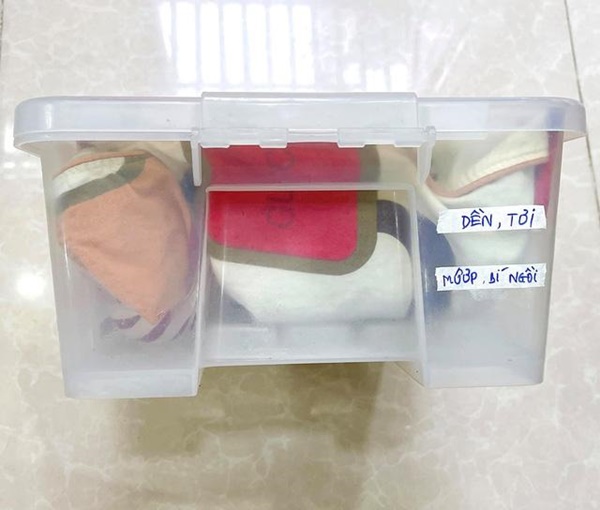 Cover the container and label the vegetable on the outside
Cover the container and label the vegetable on the outside
With this fabric storage method, leafy vegetables can be stored for 3 weeks and tubers for over 1 month. Leafy vegetables should be eaten within 1-2 weeks, so they will still be fresh and delicious.
Ms. Mandy said that of all the ways to store fresh vegetables, she likes this method the most because the fabric can be washed and reused many times, saving money.
According to the Family & Social News
Is Refrigerated Leftovers Linked to an Increased Risk of Cancer?
Dr. Lam Van Man, Head of Research, Development and Technology Transfer Department of the Institute of Safety Food, has warned of the risk of food poisoning when reheating leftovers from the refrigerator. But what should we be aware of when it comes to the possibility of these leftovers causing cancer? Here, we explore what the experts have to say on the matter and offer some tips for safe eating.

























